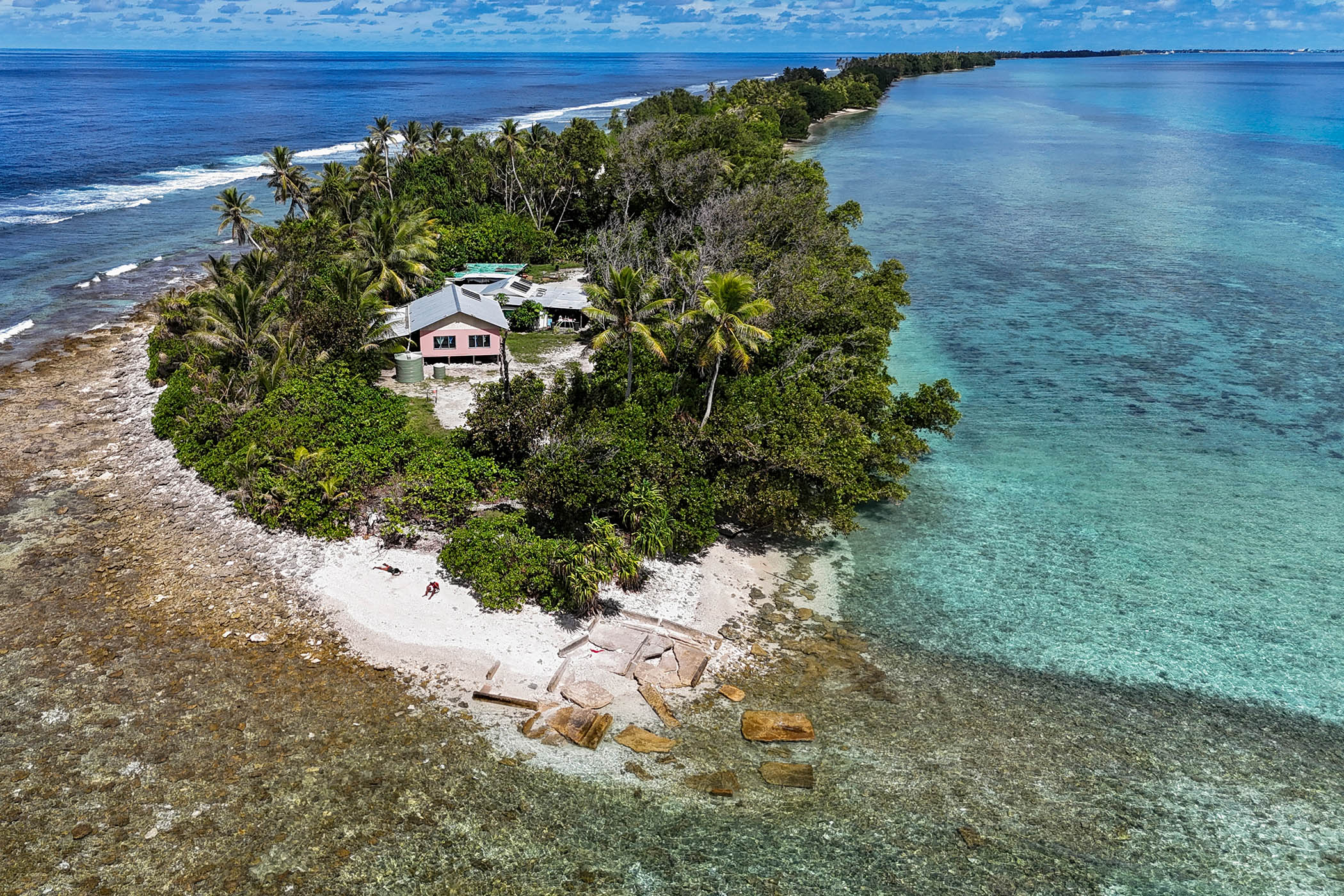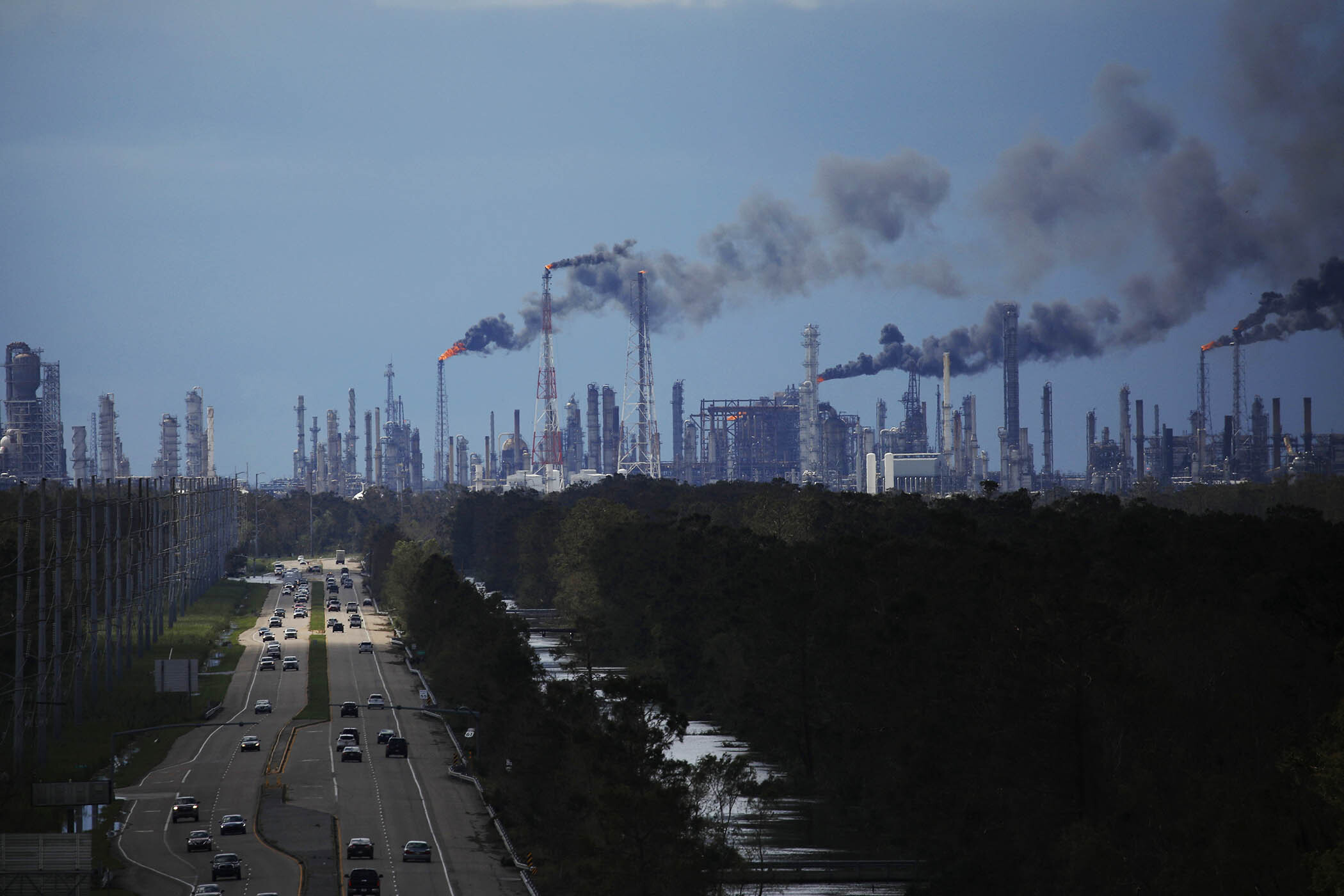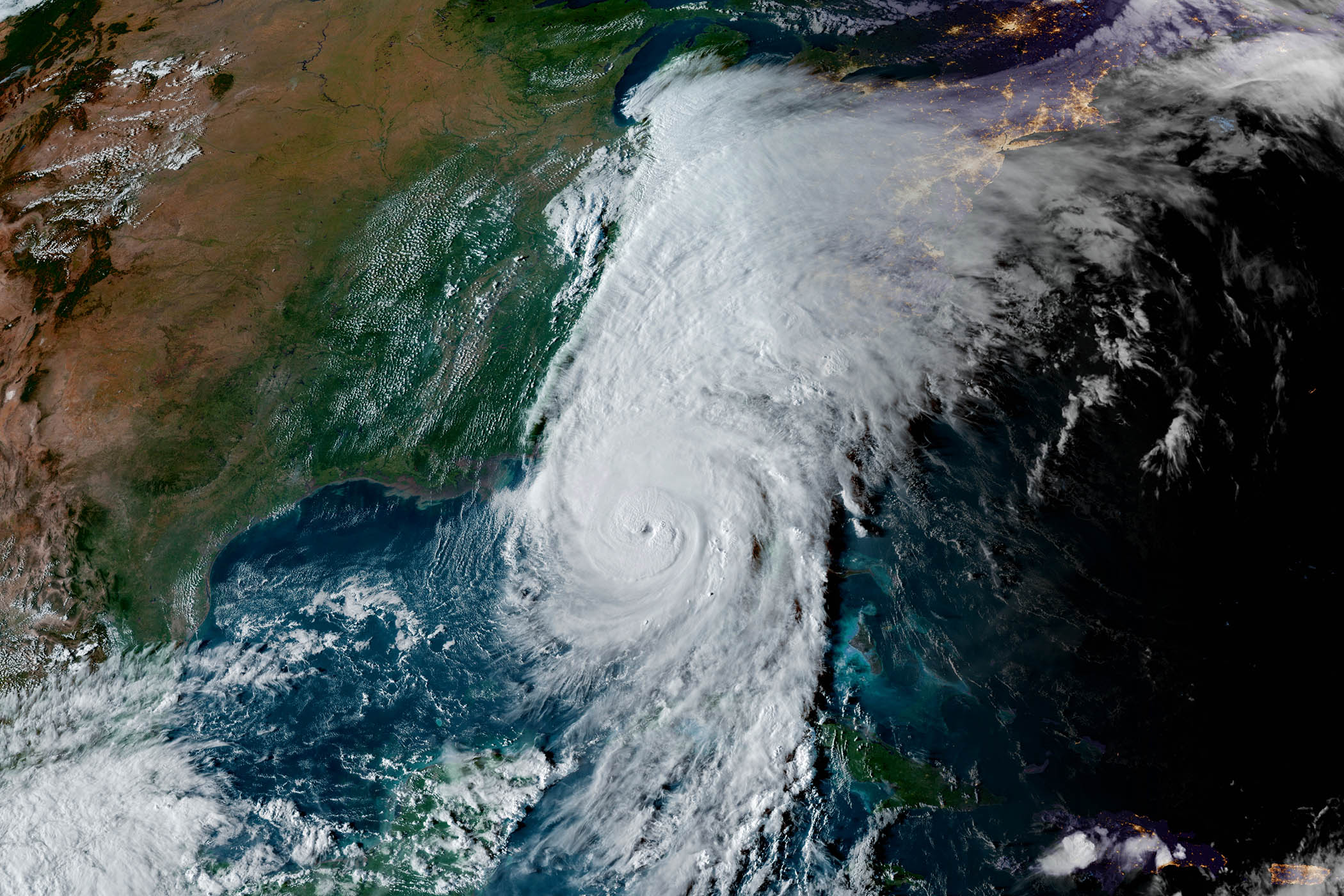The end of the world began on 25 July, with a random ballot to choose the survivors.
In Tuvalu – a chain of nine low-lying coral islands in the Pacific – more than 80% of the country’s 9,700-strong population applied for 280 of the world’s first visas for climate refugees, which will enable them to start a new life in Australia.
Under the terms of the treaty between the two states, Tuvalu will continue to exist as a nation "notwithstanding the impact of climate change related sea level rise”. The country’s government plans to make it the world’s first digital nation, archiving its culture and moving official functions online.
Leaving aside the threat of more regular floods, Tuvalu faces fresh water scarcity, as the encroaching sea contaminates its groundwater, and more extreme weather. This is the reality of climate change in a nation that is 4.5 metres above sea level at its highest point.
At this year’s United Nations climate talks, Tuvalu’s climate change minister, Maina Vakafua Talia, said the target of keeping the rise in global temperatures to 1.5C – which countries agreed to pursue in Paris a decade ago – was “the line between our survival and loss”. The talks in Belém at Cop30 ended this weekend with an agreement that delivered a fresh lease of life for petrostates such as Russia and Saudi Arabia, and no reprieve for countries like Tuvalu.
Hopes of an agreement that would include concrete steps to transition away from fossil fuels were frustrated by opposition from oil producers. Instead, after the gavel was banged on a weak agreement, host nation Brazil announced a unilateral effort to rally countries for a move away from oil, coal and gas. Iit’s likely that the world has already flown past the 1.5C goal
The UN projects that the world’s average temperature will exceed 1.5C within the next decade and that, with policies currently in place, the world is heading for just under 3C of warming by the end of this century.
The adoption of renewable technology and government policies that accelerate decarbonisation have dialled down that forecast since the Paris agreement, when the projection was for just under 4C of warming by 2100
But warming is already lifechanging for humanity and our fellow passengers on the planet.
Tipping points
Newsletters
Choose the newsletters you want to receive
View more
For information about how The Observer protects your data, read our Privacy Policy
As delegates met in Belém to discuss the world’s response to climate change, two typhoons struck the Philippines in a week, leaving more than 100 people dead and forcing the evacuation of over 1 million. Many people drowned, while others were killed by falling trees or electrocution, a common risk in floods.
Climate change has not made tropical storms more frequent, but scientists have established that it has made them more violent, with heavier rain and higher wind speeds.
Alongside the damage inflicted on people and property, a heating world brings humanity closer to tipping points – changes that will be irreversible even when carbon emissions are curbed and the planet begins to cool.
The bleaching and mortality of warm water coral reefs is a near certainty at temperatures the Earth has already reached. This will be disastrous for lives and livelihoods, as reefs shelter thousands of other marine species, including ones that humans consume, such as snapper and sea bass.
The collapse of ice sheets in Greenland and the West Antarctic, where glaciers are already undergoing significant thinning and retreat, will raise global sea levels and submerge island states such as Tuvalu.
From the spider monkeys swinging through its canopy to the ocelots stalking in its undergrowth, the Amazon is critical to biodiversity, home to around 10% of the world’s known species.
The world’s largest remaining tropical rainforest – nearly the same size as the continental United States – also sustains bands of atmospheric moisture that carry rainfall across the continent.
But a large-scale collapse of the Amazon, transforming it from forest to grassland, will be felt far beyond South America, as it stores an amount of carbon equivalent to between 15 and 20 years worth of global CO2 emissions.
One of the single most disruptive changes of a heating planet is likely to be a shift in the rainfall pattern of south Asia’s monsoon, with torrential quantities of rain falling in shorter spans and longer dry spells in between. This will affect rice harvests, the risk of floods, the availability of fresh water and the heat experienced in the dry season.
Ben Webster, associate director at the Centre for Disaster Protection, said: “We will continue to see increased pressure on the global economy, real basic commodities – food, water and land – and likely see increasing tensions [and] conflict as world resources become more scarce.”
Overshoot
The UN now speaks of "overshoot" – exceeding the 1.5C threshold but then bringing the planetary temperature back down – though this will require even steeper cuts in emissions than countries have already pledged. Above all, it will require dealing with the single biggest contributor to climate change: the burning of oil, coal and gas.
In Brazil more than 80 countries, including the EU states and the UK, supported calls for a roadmap to “transition away from fossil fuels”. The first agreement to move away from hydrocarbons was agreed at the climate summit in Dubai in 2023.
But it is not clear what such a roadmap would look like in practice, as many countries that are major oil and gas exporters are resistant to any practical steps that would harm their economies. Those includes the US – which was not even at this year’s talks.
Meanwhile, most countries in the world still rely heavily on fossil fuels as an energy source. Four years ago Denmark and Costa Rica launched a coalition of countries willing to phase out oil and gas production, but so far Colombia is the only major oil producer to join (and even Costa Rica is having second thoughts).
Tensions between countries burst into the open at the closing plenary session of Cop30. Colombia, which has been leading efforts for a transition away from fossil fuels, objected to the agreement. A Russian delegate accused the South Americans of "behaving like children". Colombia and the Netherlands will now host a conference next year on phasing out fossil fuels. Evan Guy, a climate policy expert at Global Counsel, said: “The litmus test for Cop30 was how well existing commitments would be translated into implementation. The decision shows that in terms of implementation on fossil fuels, we are not in a place for that to be done on global consensus."
Adapting
Increasingly, the emphasis is shifting from cutting emissions to practical actions that will help countries adapt to a warmer planet. Unlike electric vehicles or solar panels, which represent business opportunities, there’s usually little money to be made in building sea walls or emergency shelters. The threats are sometimes novel ones. In the Caribbean, states including Antigua and Barbuda, which have long experience of being battered by hurricanes, now face an unprecedented risk of drought.
Many countries, such as Bangladesh, have significantly improved their resilience to disaster, introducing early-warning systems and evacuation procedures after Cyclone Bhola claimed more than 300,000 lives in 1970. Despite being hit repeatedly by storms, cyclone fatalities in Bangladesh have dropped to the low hundreds.
Poorer countries, many of which produce relatively few greenhouse gas emissions, are emphasising the need for adaptation funding from the rich world. The cost of this is estimated at $310bn a year by 2035. But current finance offered by the rich world is around a 12th of the amount needed ($26bn in 2023). The final agreement at Cop30 calls for efforts to "triple adaptation finance by 2035" – a significant increase but still far short of what is needed. Meanwhile wealthy countries, including the UK and US, are slashing overseas aid.
In Belém, Tuvalu’s climate change minister, Talia, denounced Donald Trump’s “shameful disregard for the rest of the world”.
For his country, time is running out. Australia’s ballot selection for Tuvalu nationals will close in January. Soon after that, the chosen will receive emails on how to begin their new life.
Photograph by Carolyn Van Houten/ The Washington Post via Getty Images



